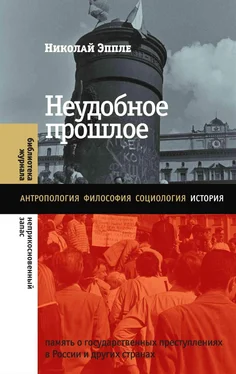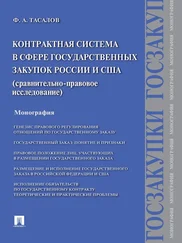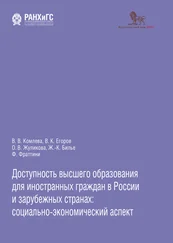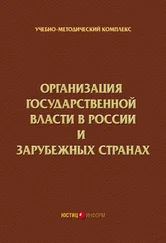Benedict R. The Chrysanthemum and the Sword: Patterns of Japanese Culture. Boston: Houghton Mifflin, 1946. Русский перевод Н. Селиверстова см. в издании: Бенедикт Р. Хризантема и меч. Модели японской культуры. М.: Наука, 2016.
Прекрасный анализ Декларации и внутренних механизмов ее принятия см. в издании: Dower J. W. Embracing Defeat: Japan in the Wake of World War II. 1st ed. New York: W. W. Norton, 1999. P. 308–314.
Buruma I. The Wages of Guilt: Memories of War in Germany and in Japan. New York: Meridian Books, 1995. P. 176.
Dower J. W. Embracing Defeat: Japan in the Wake of World War II.
Seraphim F. A Japan that Cannot Say Sorry? // Replicating Atonement: Foreign Models in the Commemoration of Atrocities. Palgrave Macmillan Memory Studies, 2017. P. 30–31.
Гринюк В. Политические проблемы храма Ясукуни // Проблемы Дальнего Востока. 2010. 4. С. 39.
Buruma I. The Wages of Guilt: Memories of War in Germany and in Japan. P. 221. Автор перечисляет наиболее заметные сражения Тихоокеанской войны.
Mason M. Bodies of Anger: Atomic Survivors in Nakazawa Keiji’s Black Series Manga // Rewriting History in Manga Stories for the Nation / Ed. by N. Otmazgin, R. Suter. Palgrave Macmillan, 2016. P. 77.
Field N. In the Realm of a Dying Emperor. New York: Vintage, 1993.
Mikyoung K. Pacifism or Peace Movementе Hiroshima Memory Debates and Political Compromises // Journal of International and Area Studies. 2008. Vol. 15. № 1. P. 61–78.
Buruma I. The Wages of Guilt: Memories of War in Germany and in Japan. P. 249.
Ibid. P. 258.
Asahi Shinbun. 1990. Feb. 16.
Данные с сайта Министерства иностранных дел Японии: https://www.mofa.go.jp/policy/q_a/faq16.html.
Barkan E. The Guilt of Nations: Restitution and Negotiating Historical Injustices. New York: W. W. Norton, 2000. P. 46–64.
Shields J. Revisioning a Japanese Spiritual Recovery through Manga: Yasukuni and the Aesthetics and Ideology of Kobayashi Yoshinori’s «Gomanism» // The Asia-Pacific Journal. 2013. November 22. Vol. 11. Issue 47. № 7; Berndt J. «Comfort Women» Comics, Multifaceted Revisiting the 2014 Manhwa Exhibit in Angoulême from the Perspective of Manga Studies // Orientaliska Studier. 2016. 147. P. 143–169.
Miyazaki H. Constitutional Amendment is Out of the Question. P. 3–4.
ТАСС. 2017. 16 июня. https://tass.ru/politika/4341427.
Послание Федеральному Собранию Российской Федерации // Официальный сайт президента РФ. 2005. 25 апреля. kremlin.ru/events/president/transcripts/22931.
Проханов А. Слава Сталину. Обращение губернатору Орловской области Потомскому Вадиму Владимировичу // Завтра. 2017. 9 августа.
Zoran Mušič. Poesie der Stille: Ausst. Kat. Wien: Leopold Museum, 2018. https://www.leopoldmuseum.org/de/presse/presseunterlagen/972/ZORAN-MUSIC-Poesie-der-Stille.
After Auschwitz: Responses to the Holocaust in Contemporary Art / Ed. by M. Bohm-Duchen. London: Lund Humphries, 1995. P. 153.
Леви П. Человек ли это? / Пер. с итал. Е. Дмитриевой. М.: Текст, 2011; Он же. Канувшие и спасенные / Пер. с итал. Е. Дмитриевой. М.: Новое издательство, 2010.
О Музиче в более широком контексте искусства после Холокоста см.: Sujo G. Legacies of Silence: The Visual Arts and Holocaust Memory. London: Philip Wilson, 2001.
Brockmann S. German Culture at «Zero Hour». Rochester: Camden House, 2004.
Gluck C. The «End» of the Postwar: Japan at the Turn of the Millennium // States of Memory: Continuities, Conflicts, and Transformations in National Retrospection / Ed. by J. Olick. Duke University Press, 2003. P. 292.
Истории «института забвения» от древности до наших дней посвящена книга выдающегося немецкого историка Античности Кристиана Майера. См.: Meier C. Das Gebot zu vergessen und die Unabweisbarkeit des Erinnerns: Vom öffentlichen Umgang mit schlimmer Vergangenheit. München: Siedler Verlag, 2010.
Фрейд З., Брейер Й. Исследования истерии / Пер. С. Панкова // Фрейд З. Собр. соч.: В 26 т. СПб.: Восточно-Европейский институт психоанализа, 2020. Т. 1.
Сказка об Иване-царевиче, жар-птице и о сером волке // Афанасьев А. Народные русские сказки. Т. 1–3. M.: Государственное издательство художественной литературы (Гослитиздат), 1957.
Пропп В. Исторические корни волшебной сказки. Л.: Изд-во ЛГУ, 1986. С. 283.
«Акт гражданского согласия и примирения» // Расследование в отношении судьбы Карагодина Степана Ивановича. 2016. 21 ноября. https://karagodin.org/?p=11119.
О забвении как способе сохранения прошлого в связи с категорией прощения см.: Рикёр П. Память, история, забвение. М.: Издательство гуманитарной литературы, 2004. Особенно с. 693–700; см. также: Ямпольская А. Искусство феноменологии. М.: Рипол-Классик, 2018. С. 84–93.
Gluck C. The «End» of the Postwar: Japan at the Turn of the Millennium. P. 292–293.
Olick J. The Sins of the Fathers: Germany, Memory, Method. The University of Chicago Press, 2016. P. 257, 264, 331, 362.
Об эволюции значения выражения «преодоление прошлого» см.: Pietsch H. Changing Meanings of Mastering the Past // The Lost Decade? The 1950s in European History, Politics, Society and Culture / Ed. by H. Feldner, C. Gorrara, K. Passmore. Cambridge Scholars Publishing, 2011. P. 134–151.
Читать дальше
Конец ознакомительного отрывка
Купить книгу









